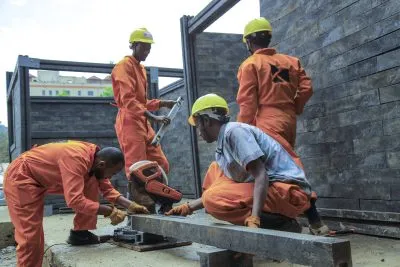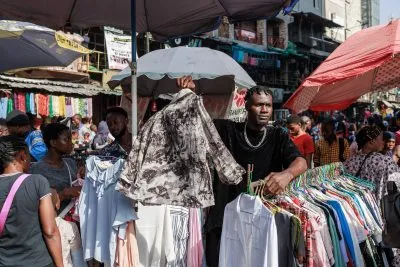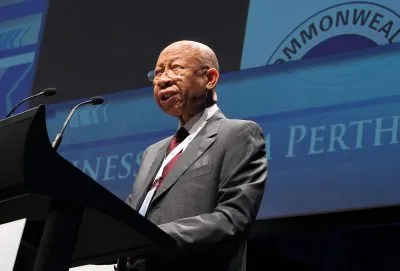The secrecy that has surrounded Tanzania’s controversial approach to tackling the Covid-19 pandemic – the country has not released national statistics since 29 April – appears to have extended to its management of the country’s foreign reserves. As Helen Jones writes, the clampdown on news organisations is fuelling speculation that the country’s forex situation may not be as rosy as it is painted.
President John Magufuli, who is facing a general election in October that he is almost certain to win, declared the country Covid-free in June, making Tanzania the only country to achieve such a feat.
What’s more astounding is that the government claims to have beaten the virus whilst imposing virtually no restrictions on movement or social distancing measures.
During this tumultuous period, Tanzania’s economy is largely operating under the premise of business as usual. Despite this approach, the country will be confronted with an unavoidable slowdown in some of its key sectors. It will also be impacted by slowdowns in the economies of its key trading partners.
In addition, Tanzania’s unconventional approach to Covid-19 has led to it receiving far less multilateral soft-financing than many of its regional peers. The country will therefore avoid long-term loan repayments but be deprived of a short-term cash injection.
In May, when many countries in the region were starting to realise the full extent of the short- to mid-term economic crisis associated with Covid-19, the Monetary Policy Committee of the Bank of Tanzania issued a press statement that highlighted some changes to the banking landscape to help buffer Tanzania against the economic fallout from Covid-19.
Changes included lowering the statutory minimum reserve from 7% to 6% and reducing the central bank’s discount rate from 7% to 5%. It also announced a reduction in haircuts to government securities from 10% to 5% for Treasury bills and from 40% to 20% for Treasury bonds to allow banks to borrow from the central bank with reduced collateral.
With rumours of a current or near-term forex shortage already starting to circulate, the same press statement included an explicit denial, saying that “the Bank of Tanzania wishes to inform the general public that the country has adequate foreign exchange reserves for importation of goods and services”.
The sentence that followed, however, issued a reminder to citizens and residents in Tanzania that in-country transactions are to be conducted in Tanzanian shillings.
The Minister of Finance and Planning, Philip Mpango, assured Tanzanians in his annual budget speech in parliament in June that the country has $5.3bn in foreign exchange reserves. The Minister’s budget speech also stated that Tanzania’s projected economic growth forecast for 2020 was 5.5% (revised downwards from 6.9% due to Covid-19 and unseasonable rains).
This projection is quite different to the World Bank’s predictions of 2.5% growth in 2020. Nevertheless, the Monetary Policy Committee of the Bank of Tanzania in July doubled down on its previous statement, noting that foreign reserves were above $5bn, covering more than six months of imports.
In August Moody’s downgraded Tanzania’s foreign and local currency issuer rating from B1 to B2, although the outlook was changed from negative to stable.
Controlling the narrative
The all but total collapse of global tourism raises questions about the accuracy and sustainability of these statements by government.
Tourism has accounted for 17% of GDP and over $2bn in foreign exchange earnings in recent years, making it the country’s largest foreign exchange earner.
Although Tanzania’s tourism sector is open for business – with borders open and no mandatory quarantine on arrival – genuine tourists are only trickling in during what is traditionally the tourist high-season.
Flights arrive half-full and largely with returning citizens and residents. Safari lodges, normally bustling during a period where visitors can view the migration of wildebeest across the Serengeti are either closed or near-empty. Those that have remained open attempt to attract citizens and residents through heavily discounted stays to keep them afloat, but this won’t bring in foreign exchange.
The recent global uptick in gold prices has seen mining-related revenue increase in 2020 but this is just a percentage increase on existing exports. No new commercial-sized mines have been built under President Magufuli. The economy is riding the rise in prices rather than investing in growing the base of projects from which it derives revenue.
Despite these key factors, the government narrative of no forex shortages persists. This narrative, through recent amendments to the country’s Electronic and Postal Communications (Radio and Television Content) Regulations is increasingly easy to control.
The ever-increasing crackdown on what news publications can publish in Tanzania was recently extended to require broadcasters to obtain approval before using foreign content and the banning of any content that could harm the national currency or cause confusion related to Tanzania’s economic condition. This definition is likely to be applied quite liberally, particularly in the lead-up to the October election.
Questions about foreign exchange and the strength of the Tanzanian shilling have, however, been raised for some time. In 2019 when speculation regarding the strength of the Tanzanian shilling was brewing, the Bank of Tanzania shut down dozens of bureaux de change across the country and for a period only commercial banks were able to provide this service. Although some bureaux de change have re-opened, under stricter control mechanisms, this service continues to be monopolised by the major banks.
Government statements, restrictions on media and a tightly controlled foreign exchange service aside, in a country that thrives off rumour, anecdotal evidence is increasingly pointing towards a growing shortage of foreign exchange.
Commodity traders consulted reported unusual delays in cross-border dollar payments. The banks that they have relied on for years for high volume fast turnaround dollar transactions are now delaying the release of dollars being sent abroad.
Additionally, multiple businesses remarked that during the Covid-19 period their dollar accounts have been closed by their banks – without prior consultation – and funds rolled over into their Tanzanian shilling accounts.
Threat to investment
Officially, the status of Tanzania’s foreign exchange reserves is healthy and there is no cause for alarm. With an increasingly stifled media landscape, many rely on anecdotal evidence to judge the health of the economy and make their investment decisions.
Increasing secrecy around the real status of the economy – be it positive or otherwise – is going to see companies continue to shy away from re-investing profits in Tanzania and will no doubt see the more sophisticated Tanzanian investors look increasingly to diversify their investments outside the country.
Related article
Want to continue reading? Subscribe today.
You've read all your free articles for this month! Subscribe now to enjoy full access to our content.
Digital Monthly
£8.00 / month
Receive full unlimited access to our articles, opinions, podcasts and more.
Digital Yearly
£70.00 / year
Our best value offer - save £26 and gain access to all of our digital content for an entire year!

 Sign in with Google
Sign in with Google 





